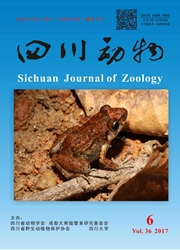

 中文摘要:
中文摘要:
Background: Females can differentially deposit the immune factor lysozyme into eggs based on conditions of local breeding density and laying order.Materials: We collected 80 eggs from Great Cormorants(Phalacrocorax carbo) and then analyzed whether the level of lysozymes in the eggs is related to breeding density and laying order.Results: Between clutches,the level of lysozyme in eggs is positively related to breeding density; while within a clutch,the level of lysozyme is positively related to the laying order.Conclusion: When parents breed under conditions of high density,they allocate more lysozymes to their offspring,a trait adaptive to the local environment.That the increase in the level of lysozymes is a function of the laying order seems a necessary condition to mitigate the hierarchy among siblings for improving the survival of the entire clutch.
 同期刊论文项目
同期刊论文项目
 同项目期刊论文
同项目期刊论文
 期刊信息
期刊信息
